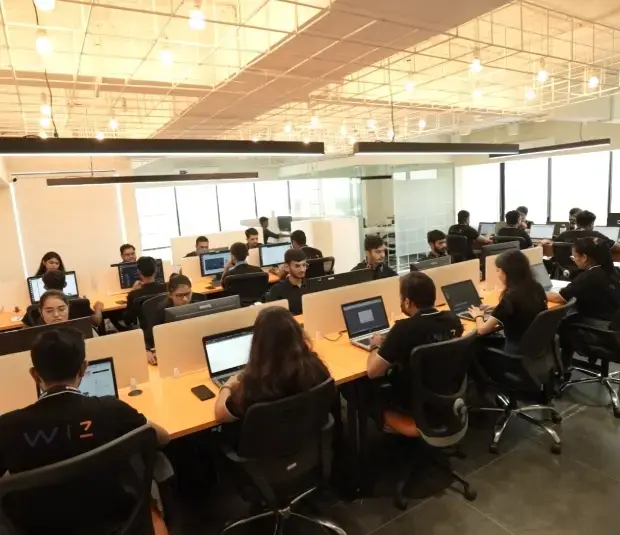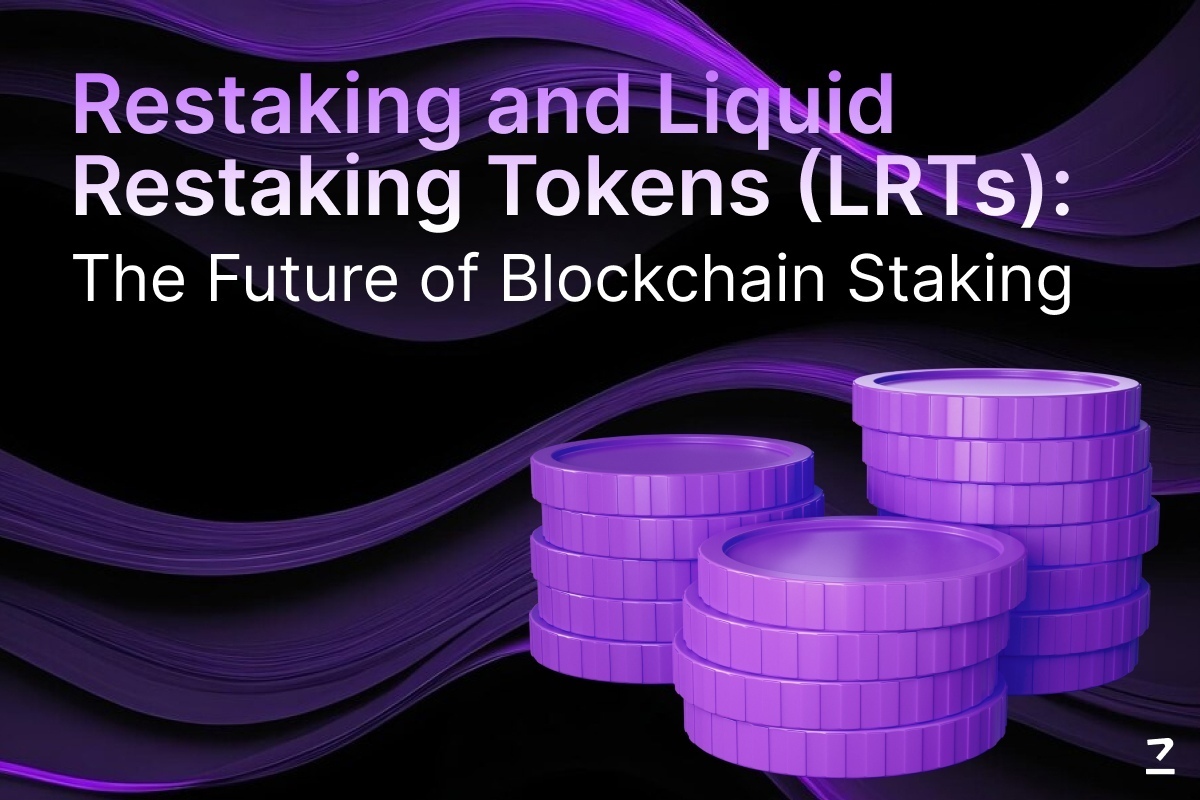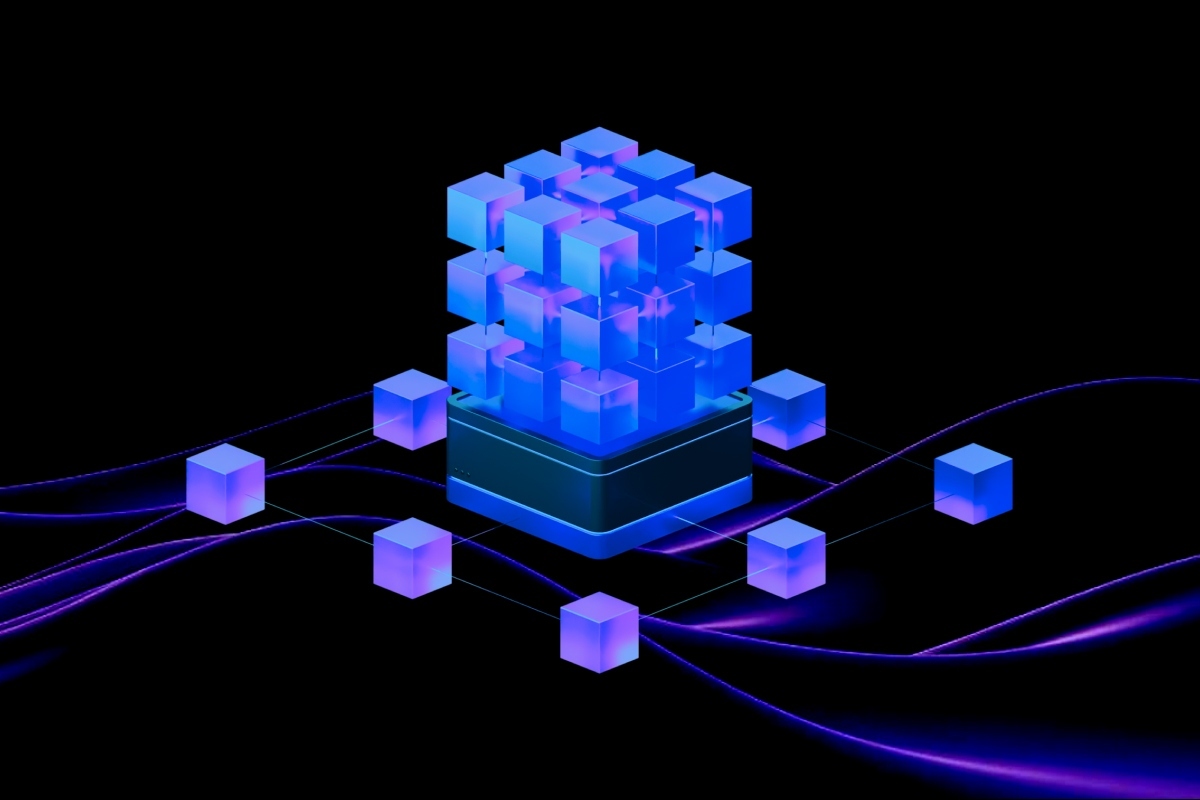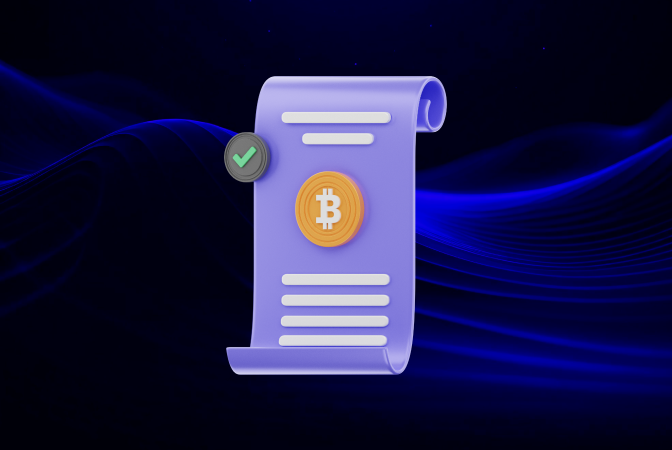SHARE THIS ARTICLE
The Economics of Enterprise Blockchain Adoption in 2025
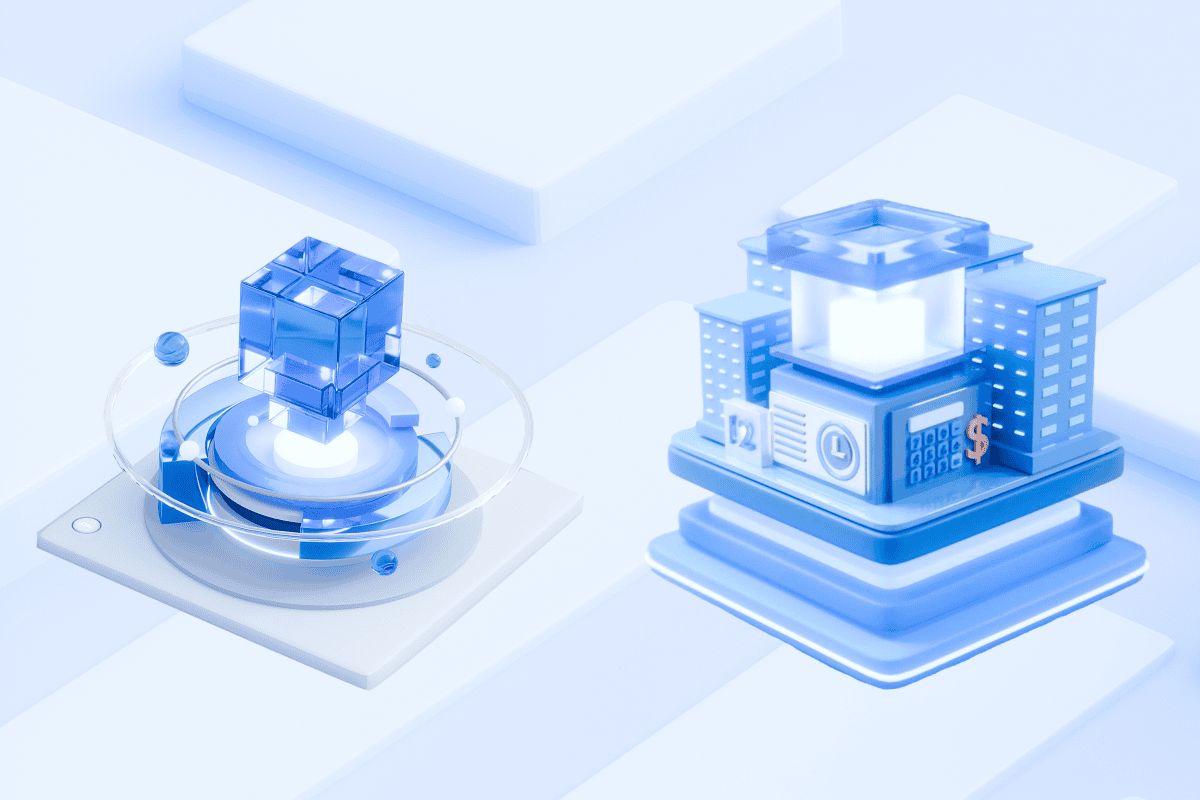
Blockchain has evolved from a niche concept into a solid option for businesses looking to simplify processes and cut costs. What started as the cornerstone of cryptocurrencies is now being used to improve how enterprises handle data, transactions, and collaboration.
In 2025, the focus has shifted to the economics of blockchain—how it helps businesses save money, reduce waste, and improve efficiency. It’s no longer just a “tech trend.” Companies are using blockchain to solve practical problems like eliminating intermediaries in supply chains, optimizing operations, and meeting compliance requirements without adding extra costs.
Codezeros specializes in blockchain development services that fit real-world needs. We work with enterprises to create solutions that deliver clear financial benefits while making their operations smarter and more effective.
The Cost-Benefit Analysis of Blockchain Adoption
Adopting blockchain for your enterprise comes with both upfront costs and long-term gains. To make the right decision, it’s important to weigh the initial investments against the potential savings and benefits.
Initial Investment Considerations
Getting started with blockchain requires a solid infrastructure. You’ll need to decide whether to host it on-premise, giving you more control, or use a cloud-based option, which is often quicker to deploy. Each has its costs, and the choice depends on your business needs.
Development costs are another factor. Building enterprise-grade blockchain solutions isn’t a one-size-fits-all approach. From designing the system to coding and testing, there are expenses involved. And if your business has specific requirements, like supply chain management or regulatory compliance, you’ll need to budget for customization.
Operational Efficiency Gains
One of the biggest benefits of blockchain is the ability to cut out unnecessary intermediaries and automate manual processes. For example, instead of relying on third parties to validate transactions or manage data, blockchain does this automatically, saving time and money.
Real-time data sharing is another advantage. With blockchain, all parties in a network can access accurate, up-to-date information. This reduces overhead costs and makes operations run smoother.
Scalability and Long-Term ROI
Blockchain isn’t just about short-term savings—it’s a long-term investment. Over time, businesses can see significant cost reductions in areas like supply chain management, compliance reporting, and even customer retention.
For example, blockchain can help track goods more efficiently, reducing waste and errors. Automated compliance processes lower the risk of penalties and the cost of audits. And by offering customers more transparency, businesses can build trust, which often translates into loyalty.
The costs of adopting blockchain might seem high at first, but the savings and efficiencies it brings can make it a smart choice for enterprises looking for both short- and long-term value.
Key Economic Drivers for Adoption in 2025
Blockchain adoption in 2025 is being driven by its ability to solve everyday business problems and create practical economic benefits. Here’s what’s making it a smart choice for enterprises.
Decentralization in Multi-Stakeholder Environments
In industries where multiple parties need to work together—like supply chains, finance, or healthcare—trust between participants is often a challenge. Blockchain provides a shared system where all parties have access to the same data, making it easier to work together without concerns about fraud or errors.
For example, in supply chains, blockchain tracks goods from production to delivery, giving everyone involved a clear view of what’s happening at each step. This transparency reduces disputes and makes partnerships more efficient, saving both time and money.
Tokenization of Assets and New Revenue Streams
Tokenization turns physical or digital assets into digital tokens that can be traded or used in new ways. This approach is helping businesses create new revenue opportunities by making assets more accessible and easier to trade.
For instance, real estate companies are starting to tokenize properties, allowing investors to buy and sell fractions of ownership. Similarly, some brands use tokens as part of loyalty programs, offering customers unique rewards and opening up new income sources for the business.
Regulatory Alignment and Compliance Automation
Meeting regulatory requirements is often costly and time-consuming, but blockchain helps simplify the process. By creating a permanent record of transactions, it makes compliance reporting faster and reduces the need for manual checks.
For example, financial institutions can use blockchain to maintain detailed records that satisfy audit and regulatory demands. This reduces the risk of penalties and cuts down on the costs associated with compliance.
Challenges in Enterprise Blockchain Economics
While blockchain offers clear benefits, adopting it isn’t without its hurdles. Here are some of the key challenges businesses face when considering blockchain from an economic standpoint.
Interoperability Costs
Many businesses rely on legacy systems that weren’t designed to work with blockchain. Integrating the two can be complex and expensive. It often requires custom solutions to make older systems compatible with blockchain technology, adding to the overall cost of adoption.
For example, a company using traditional ERP software may need to invest in middleware or other integration tools to connect their systems to a blockchain network. This adds another layer of expense and complexity, especially for larger organizations with diverse operations.
Talent Shortages and Training Costs
Blockchain is still a relatively new field, and finding professionals with the right skills can be a challenge. Experienced blockchain developers and architects are in high demand, which drives up hiring costs.
On top of that, existing teams often need training to understand how blockchain works and how it can be applied to their roles. This can mean significant time and money spent on upskilling employees or bringing in external consultants.
Hidden Costs in Scaling Solutions
As blockchain adoption grows, scaling the technology to handle larger volumes of data and transactions brings its own set of challenges. High energy consumption is one of the most talked-about issues, especially for proof-of-work systems. Businesses adopting blockchain need to account for the associated energy costs and, in some cases, invest in greener solutions to maintain sustainability goals.
Additionally, scaling often means upgrading hardware or infrastructure, which can add unexpected costs to the equation. For enterprises focused on rapid growth, these expenses can quickly pile up.
While these challenges are real, they’re not insurmountable. Businesses that plan ahead and work with experienced blockchain providers can tackle these issues more effectively and avoid unnecessary expenses.
Case Studies: Economic Impact of Blockchain in Key Industries
Blockchain’s impact is already being felt across various industries, offering practical solutions to everyday challenges.
Supply Chain and Logistics
Supply chains involve multiple players, from manufacturers to distributors, and blockchain is helping keep everything in check. By providing real-time tracking, blockchain ensures that all stakeholders have accurate data on the movement of goods.
For example, companies are using blockchain to track shipments from origin to destination, reducing errors and delays. It also helps prevent fraud by creating a transparent and unchangeable record of each step in the supply chain. This not only cuts costs but also improves efficiency, especially in industries like food and pharmaceuticals where trust and accuracy are critical.
Healthcare
Data sharing is a major challenge in healthcare, with different providers often using incompatible systems. Blockchain solves this by creating a single, secure source of truth that can be accessed by authorized parties.
Hospitals and clinics can use blockchain to share patient records with specialists or labs without worrying about data breaches or duplication. This reduces administrative costs and speeds up treatment. For example, blockchain-based systems are already being used to track vaccine distribution, ensuring that doses reach the right places without waste or fraud.
Finance
Cross-border payments are notorious for being slow and expensive, with high fees and multiple intermediaries. Blockchain cuts through this by enabling direct transactions between parties, often completing payments in minutes instead of days.
For example, financial institutions are using blockchain to handle international remittances more efficiently, reducing costs for both the institutions and their customers. This has been especially impactful in regions where traditional banking infrastructure is limited.
Codezeros’ Role in Driving Blockchain Impact
We’ve worked with clients in these industries to implement blockchain solutions that address their specific challenges. From building systems for real-time supply chain tracking to developing platforms for cross-border transactions, our projects have delivered tangible economic benefits to businesses.
By focusing on practical solutions and real-world results, we’ve helped enterprises reduce costs, improve efficiency, and build trust. These case studies show how blockchain isn’t just an idea—it’s a tool for solving real problems.
Framework for Enterprise Decision-Making
Deciding whether to adopt blockchain involves more than just understanding the technology. It requires a clear look at the costs, benefits, and overall feasibility for your business.
Economic Feasibility Checklist
When evaluating blockchain adoption, focus on key metrics to assess its economic impact:
-
Total Cost of Ownership (TCO): Consider the full costs, including setup, development, integration, and ongoing maintenance.
-
Return on Investment (ROI): Look at the potential savings or new revenue streams blockchain could create.
-
Scalability: Evaluate whether the system can grow with your business needs without significant additional costs.
These metrics give a clear picture of whether blockchain makes financial sense for your business.
Building a Business Case for Stakeholders
To get buy-in from stakeholders, it’s important to present both the tangible and intangible benefits of blockchain adoption.
-
Tangible Benefits: Highlight cost savings from process automation, reduced intermediaries, or lower compliance expenses. Provide specific examples and numbers to show real impact.
-
Intangible Benefits: Discuss advantages like improved trust among partners, better data security, and faster decision-making. While harder to quantify, these benefits can significantly improve business operations.
By presenting a balanced view that includes potential challenges and solutions, you can build confidence among stakeholders and align everyone on the value of blockchain.
How Codezeros Helps Enterprises Make Informed Decisions
Our team at Codezeros works closely with businesses to evaluate whether blockchain is the right fit. From identifying metrics like TCO and ROI to creating a detailed implementation roadmap, we provide the insights and expertise enterprises need to make confident decisions.
We also help in building strong business cases, showcasing how blockchain can address specific pain points while delivering measurable benefits. Whether you’re exploring blockchain for the first time or looking to scale an existing solution, we’re here to guide you through every step.
The Future of Blockchain Economics: Trends to Watch
As blockchain adoption continues to grow, new trends are shaping how businesses approach its economics.
Integration with AI and IoT
Blockchain is becoming a key player in autonomous systems that combine artificial intelligence (AI) and the Internet of Things (IoT). These systems rely on real-time data exchange and decision-making, which blockchain can support with its secure and transparent infrastructure.
For example, IoT devices in a supply chain can use blockchain to track shipments and automate reordering processes based on inventory levels. Similarly, AI-driven smart contracts can trigger payments or actions without human involvement. This reduces operational costs and minimizes errors, making processes more efficient and cost-effective.
Rise of Blockchain-as-a-Service (BaaS)
Setting up a blockchain system can be expensive, but BaaS is changing that. With BaaS, businesses can use blockchain platforms without the need for extensive infrastructure or in-house expertise. This significantly lowers upfront costs and makes blockchain accessible to companies of all sizes.
For instance, cloud providers now offer plug-and-play blockchain solutions, letting businesses quickly deploy blockchain networks for tasks like supply chain tracking or data management. This trend is expected to grow, making blockchain a more viable option for enterprises looking to test or scale its use.
Governance and Decentralized Decision-Making
Decentralized Autonomous Organizations (DAOs) are becoming more prominent, offering a new way for businesses to handle governance and decision-making. DAOs use blockchain to allow stakeholders to vote on key decisions in a transparent and automated way.
This model is already being explored by industries like finance and supply chain, where collaboration and accountability are critical. DAOs reduce the need for traditional management structures, cutting costs and improving trust among participants.
How Codezeros Accelerates Enterprise Blockchain Adoption
At Codezeros, we specialize in developing blockchain solutions that address real business challenges. Whether it’s building decentralized applications, creating smart contracts, or integrating blockchain into existing systems, we help enterprises get the most out of this technology.
What Sets Us Apart
-
Customization: We design solutions that fit your business needs, ensuring that the blockchain system aligns perfectly with your processes and goals.
-
Scalability: Our systems are built to grow with your business, so you don’t have to worry about outgrowing your blockchain infrastructure.
-
Industry Expertise: With a deep understanding of industries like finance, healthcare, and supply chain, we know how to design solutions that solve the specific challenges your business faces.
Calculating the True Value of Blockchain in 2025
Blockchain in 2025 is more than just a technology—it’s a practical way for businesses to reduce costs, optimize processes, and explore new opportunities. While there are challenges, like integration with existing systems and the need for skilled professionals, the long-term benefits make it a worthwhile investment for many enterprises. From cutting out middlemen in supply chains to automating compliance processes, blockchain is proving its value where it matters most.
At Codezeros, we help businesses take the next step with blockchain. Whether you’re just getting started or looking to grow your blockchain initiatives, we provide the expertise and support you need to make it work for your goals.
If you’re ready to see how blockchain can fit into your business, let’s connect. Schedule a consultation with our team or explore our blockchain development services today.
Post Author

As a distinguished blockchain expert at Codezeros, Paritosh contributes to the company's growth by leveraging his expertise in the field. His forward-thinking mindset and deep industry knowledge position Codezeros at the forefront of blockchain advancements.
Build enterprise-grade applications with cutting-edge blockchain solutions from Codezeros
From tokenization and smart contracts to decentralized applications (dApps) and supply chain traceability, Codezeros provides end-to-end blockchain solutions helping you develop secure, scalable, and interoperable applications.
